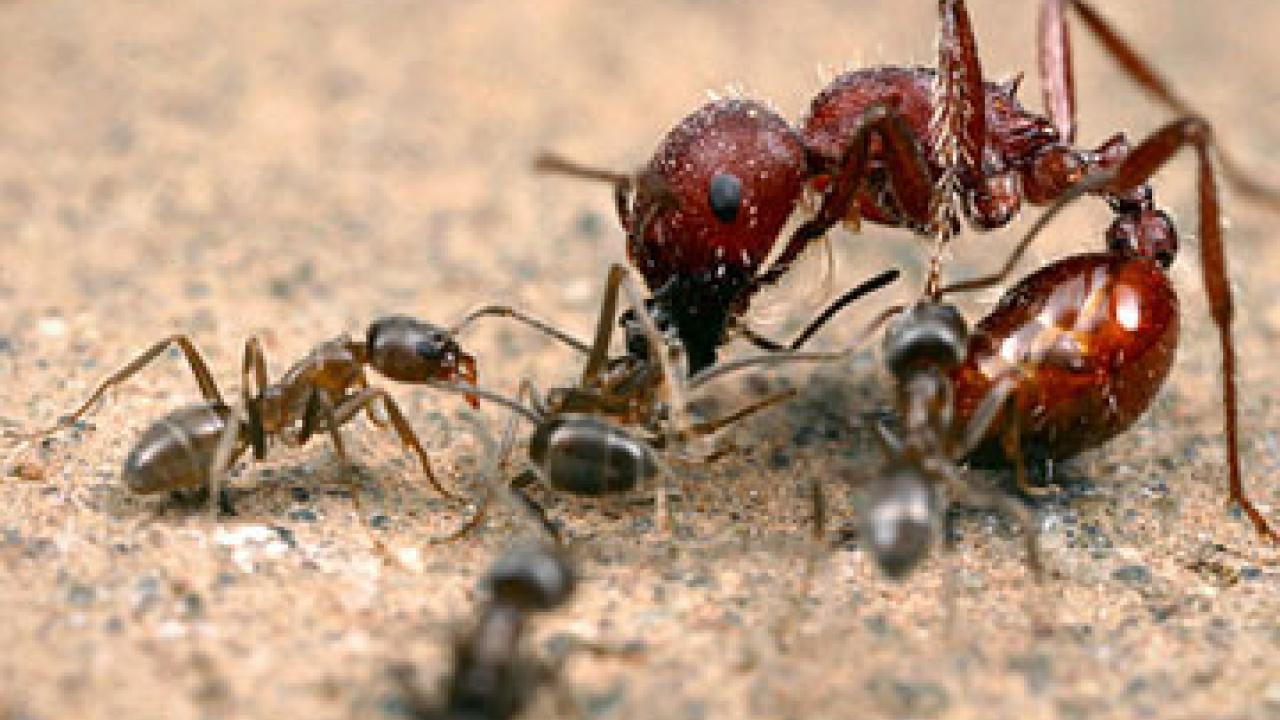Argentine ants have thrived since they arrived in North America a century ago, building a peaceful empire that extends for hundreds of miles. But the ants have yet to encounter the students of UC Davis professors Rick Grosberg and Sebastian Schreiber.
At a student-organized workshop on campus Sept. 17, the eight evolution and ecology undergraduates will discuss whether and how that ant empire might be broken up into warring factions.
The students are taking part in the CLIMB (Collaborative Learning at the Interface of Mathematics and Biology) class led by Grosberg and Schreiber in the Department of Evolution and Ecology.
In their home range, Argentine ants form colonies a few yards across and coexist with other ant species. But since their arrival in the United States, they have multiplied seemingly without limit, forming supercolonies with thousands of queens and worker ants by the millions, Grosberg said.
It's highly unusual for distantly related animals of the same species to cooperate in this way. Normally, ants from different colonies recognize each other as being "strangers" through chemical signals and fight, so that the colonies hold one another in check.
But when Argentine ants arrived in the U.S., they went through what biologists call a "population bottleneck," causing a loss of variation in genes for those chemical signals. As a result, an ant from San Diego that met one from Redding would recognize it as a friend and a colleague.
The UC Davis undergraduates have been using mathematical models to study whether introducing new chemical recognition cues into the population might revive the ants' long-gone tribal rivalries. A major challenge: introducing a new recognition cue so that it isn't quickly squashed by the majority.
In addition to student presentations, the workshop will also include talks by Grosberg, who studies cooperation and combat in colonies of sea anemones and other simple animals; Neil Tsutsui, a professor of environmental science, policy and management at UC Berkeley, who carried out his postdoctoral research on Argentine ants in Grosberg's laboratory; Dong-Hwan Choe, a postdoctoral researcher in Tsutsui's lab; Professor Peter Nonacs, Department of Ecology and Evolutionary Biology at UCLA; and Professor Philip Ward of the UC Davis Department of Entomology, one of the world's leading experts on ant systematics.
Funded by a grant from the National Science Foundation, the CLIMB program exposes a small group of undergraduates in mathematics and biology to a wide range of tough scientific problems that draw on both disciplines.
Media Resources
Andy Fell, Research news (emphasis: biological and physical sciences, and engineering), 530-752-4533, ahfell@ucdavis.edu
Rick Grosberg, Evolution and Ecology, 530-752-1114, rkgrosberg@ucdavis.edu
